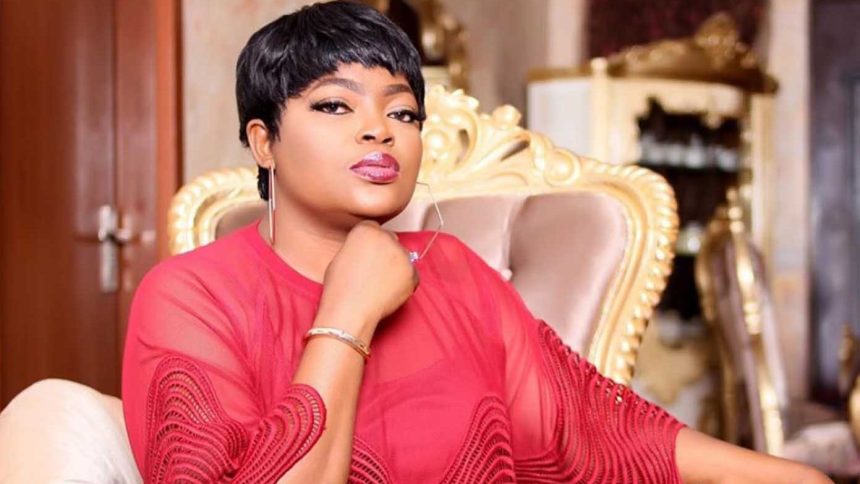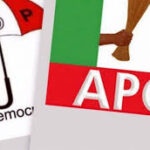When the Nollywood actress, Funke Akindele, was unveiled as the running mate of the People’s Democratic Party’s governorship candidate in Lagos State, AbdulAzeez Olajide Adediran, some of the reactions to the ticket were downright condescending. Even though some of the skeptics could tell her comical screen characters apart from her real-life personality, she’s not their image of an ideal politician and this seemed to bother them, subjecting her to fiercer scrutiny and ridicule.
The typical Nigerian voter has consumed too much political public relations that the image of an entertainer, especially one who has played dimwitted and malapropic comedian in celebrated TV series and movies, as a public office-holder is hard to market. The odds always favour either big-spending private citizens with mysterious sources of wealth or public servants with a documented history of tampering with public funds. Our movie industry, sadly, is a victim of unflattering stereotypes and is perceived as the dumping ground of academic misfits.
- Lagos records 847 emergency cases in six months as fire disasters, building collapse rage
- BREAKING: Matawalle bars Zamfara monarchs from awarding Chieftaincy titles without approval
If Ms Akindele who, according to her profile, holds a National Diploma in Mass Communication and Bachelor’s degree in Law, sits on a panel with any of our familiar politicians with unverified academic history or even notable holders of a secondary school certificate, she would be instantly perceived as the least qualified or formally-educated, and that’s the problem.
But she ought to have stood out in the race to Lagos State’s seat of power because of her seeming disadvantage as an actress. Lagos State isn’t only the commercial hub of the country, and the live-wire of our corporate services, it drives the media and entertainment industry on the continent. Nigeria’s media and entertainment industry, which currently attracts $7.7 billion in revenue, according to PwC, is projected to fetch the country $15 billion by 2025, and so Funke and her professional tribe ought to be frontline stakeholders in the actualisation of this goldmine.
When, in 2003, the world-renowned American actor, Arnold Schwarzenegger, ran for the Governor of California in a recall election, he edged out a Stanford and Columbia-trained predecessor and would go on to get re-elected in the subsequent election. He was running to represent the home of Hollywood, the world’s largest film industry, and the people weren’t unaware of his essence in the industry. He’s a long-practised actor privileged to be a part of a system that keeps afloat the economy of the state with the highest GDP in America.
Schwarzenegger’s venturing into politics isn’t an exception. Ronald Reagan, another prolific movie actor, occupied the governorship office in California about 36 years before him and went on to become the 40th President of the United States between 1981 and 1989. From the professional wrestler, Kane, who’s known outside the ring as Glenn Thomas Jacobs, to Clint Eastwood, who’s served as Mayor of the Californian city of Carmel-by-the-Sea, media and entertainment stakeholders in the United States have never failed to assert their place in the running of the country and, especially, their places of residence.
For too long, Nigerian entertainers functioned as PR agents of the political class and jostled for the highest-paying gigs every election year only to find themselves too compromised to speak out against bad governance when their loud voices were sought by their fans. Their choices to sit out even well-intentioned protests against a national dysfunction are mostly inspired by the realisation that, having fed fat on political largesse, they are morally unfit to lead their fans to face their paymasters.
Last year, when the rapper Eedris Abdulkareem released a remix of his 2004 hit song, Jaga Jaga, he called out the Minister of State for Labour and Employment, Festus Keyamo. The minister, he sang, “don dey chop with cabal o,” and this led to a humiliating social media spat. Keyamo called the song a “poor attempt at blackmail” and that it was a fallout of his refusal to pay the musician the sum he requested to promote the Buhari candidacy in the build-up to the 2019 elections and his subsequent rejections of the rapper’s requests for money to cater to his personal exigencies.
The Keyomo-Abdulkareem spat is a likely embarrassing scenario that explains the conspiracy of silence by actors, musicians and various media personalities who ought to be visible and vocal drivers of our political processes. Singer Davido’s role in the election of his uncle in the just-concluded governorship election in Osun State, for instance, underlines the power Nigeria’s media and entertainment players could’ve wielded if their brands hadn’t been for sale. Even though his involvement was mere solidarity with his family, it shows the magic a self-willing entertainer can perform in influencing our political participation or dissuading apathy.
This mindset that entertainers, some of whom are excellently educated, can’t hold political offices that small-time crooks in Agbada hold, is just ridiculous. The difference between Ms Akindele and our politicians is that, in movies, she pretends to be what most of them are. She plays the Dino Melayes for a living, but Nigerians don’t seem ready for this difficult conversation. Anyone who watched her Channels TV interview, where she shared her dream for Lagos State, won’t equate her with Jenifa—her most memorable screen character.
Ms Akindele is out to be assessed, but we can’t be fair unless we forego our stereotype of the industry she represents. We can’t rank our certificate-forging politicians above, say, rapper Naeto C who holds a Master’s degree in Energy Economics. We must scrutinise our entertainers and the manifestos they market to earn our votes, no doubt, but without this dangerous belief that they are incapable of managing the very political offices held by even less-qualified beneficiaries of systemic nepotism.

 Join Daily Trust WhatsApp Community For Quick Access To News and Happenings Around You.
Join Daily Trust WhatsApp Community For Quick Access To News and Happenings Around You.


